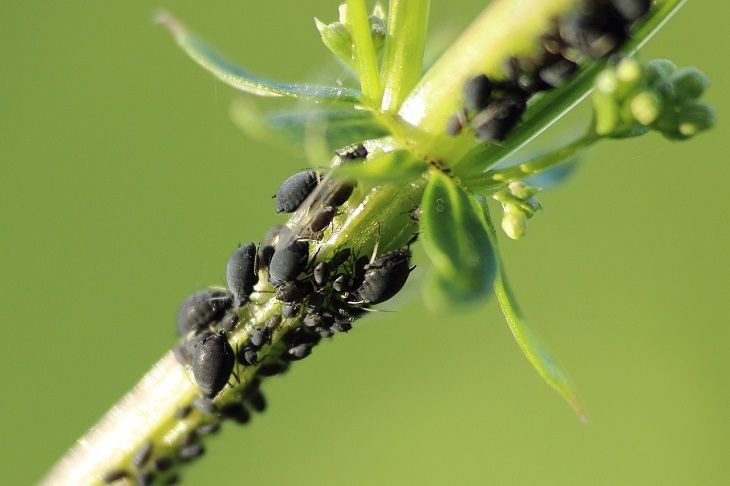Preventing aphid infestation: Gardening tips
Even the smallest pests can sometimes cause lots of damage in your garden, so it's easier to prevent an infestation than to fix it.
Aphids can be quite hard to get rid of, so do your best to prevent them from appearing in your garden.
Here are some tips that might help.
Selective Planting
Be smart about what you plant. Choose plants that are less attractive to aphids. Some plants, like catnip, basil, and mint, act as natural repellents.
Beneficial Insects
Introduce beneficial insects to your garden.

Ladybugs, lacewings, and parasitic wasps are like your garden's pest control team. They love to snack on aphids.
Diatomaceous Earth Barrier
Sprinkle food-grade diatomaceous earth around the base of your plants. It's like tiny, harmless shards that keep aphids away.
Garlic and Onion Spray
Make a homemade spray by blending garlic and onions with water. Aphids dislike the smell, so it's like creating a protective shield around your plants.
Sticky Traps
Set up sticky traps around your garden. Flying aphids get stuck on them, reducing the chances of an infestation.
Physical Removal
Use a strong stream of water to wash aphids off your plants. It's like giving them a shower they don't enjoy.
Natural Repellents
Plant aromatic herbs like oregano, dill, or cilantro. Aphids find their strong scents unpleasant and are less likely to hang around.
Ant Control
Control ant populations in your garden. Ants "farm" aphids for their honeydew, so keeping ants away helps break this partnership.
Mulching Matters
Use organic mulch like straw or wood chips. It creates a barrier that makes it harder for aphids to reach your plants.
Vigilant Monitoring
Regularly inspect your plants for signs of aphids – curled leaves, sticky residue (honeydew), or clusters of tiny bugs.
Early detection makes it easier to manage the situation.
Plant Diversity
Mix up your plant varieties. Aphids often target specific plants, so having a diverse garden can confuse and deter them.

